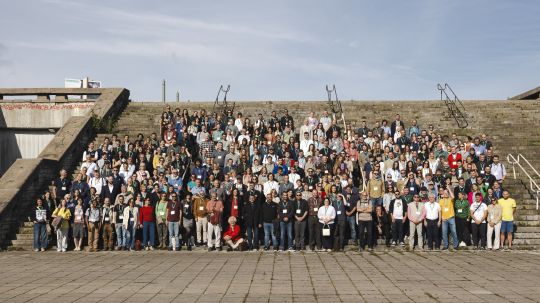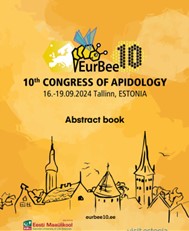On September 16-19th 2024, the EurBee 10th Congress of Apidology took place in Tallinn, Estonia. The event was organized by the Estonian University of Life Sciences in tight collaboration with local beekeeping associations and company Publicon OÜ.
Among others, the congress was sponsored by the Eva Crane Trust, who supported 6 keynote speakers flights, accommodation and participation.
In total, 350 participants from 43 countries attended the congress, featuring 156 oral presentations and 163 posters.
The main focus of the congress concentrated on domestic honey bee and wild pollinators issues. The EurBee 10 symposia was divided into 12 different sessions:
- Bee immunity and diseases
- Impacts of climate change and other factors in a changing environment
- Pollinators and pollination ecology in natural and agricultural landscapes
- Novel technologies and methodologies in bee research
- Ecotoxicology, pesticides, pollutants
- Communication and behavior
- Evolution and population genetics of bees
- Beekeeping issues
- Bee diversity, conservation and interactions among species
- Bee nutrition
- Information flow from research to public and practice
- Open topic
Each session had its own moderator, who led the presentations and discussion. In addition, each session moderator picked up one of the “leading idea” from the session and thus by the end of the congress multiple outstanding ideas were brought out.
The leading ideas were as follows:
- Managed and wild pollinators share space with different levels of harmony
- The variety and success of bees is related to the variety and success of crops
- In the bee-school of grooming, learning from experienced demonstrators is the most effective
- Solving beekeepers' issues has a positive effect on bees
- For new ideas, we need science outreach and direct contact between beekeepers and society
- Some bee viruses spread among bees and some do not
- Bee flying doctors can deliver a dose of entomopathogenic fungi to thrips infected fields.
- Use smart solutions to pollinate crops better, e.g. flowering cover crops, hive/nest location and less pesticides.
- Disease detection is still a problem for beekeepers.
- Great concern is due about the negative effects of malnutrition in pollinators due to human activities
- Adding flowering plant diversity in any form is beneficial for pollinator diversity
- Much basic knowledge and collaboration among sectors is needed to protect wild and managed bees
- Wild bee species from narrow niches risk losing the competition in a changing environment
- High quality bee genomes are essential for conservation genetics
The EurBee 10 Abstract Book is available for download here:
https://eurbee10.publicon.ee/programme/scientific-programme
Besides scientific programme, the attendees also enjoyed a welcome reception at the Creative Hub and a banquet at the Seaplane Harbour. In addition, all the participants had the opportunity to take Tallinn City tour or Viru bog hike, accompanied by very warm and sunny autumn weather.
The EurBee 10 organizing committee expresses its warmest thanks to the Eva Crane Trust for its financial support to the success of the event!
The EurBee 10 organizing committee welcomes you always back to Estonia!
Looking forward to seeing you in the EurBee 11 in 2026 Bologna, Italy.
Dr. Risto Raimets, Estonian University of Life Sciences
Ref.: ECT_20240301
Completed.2024


